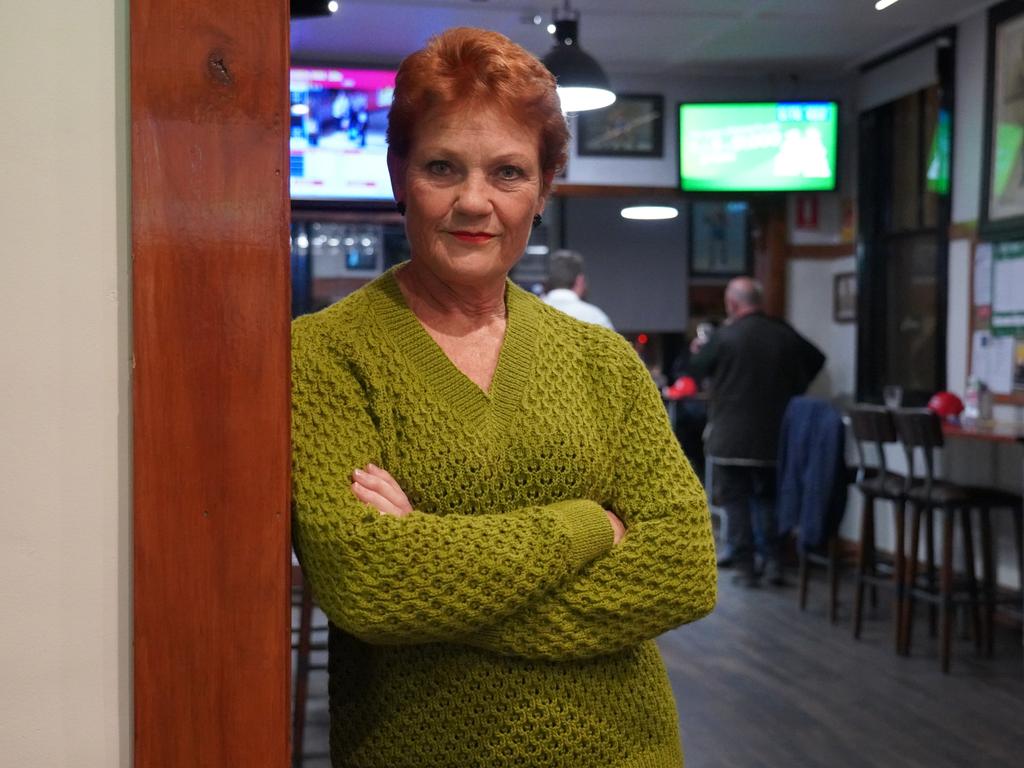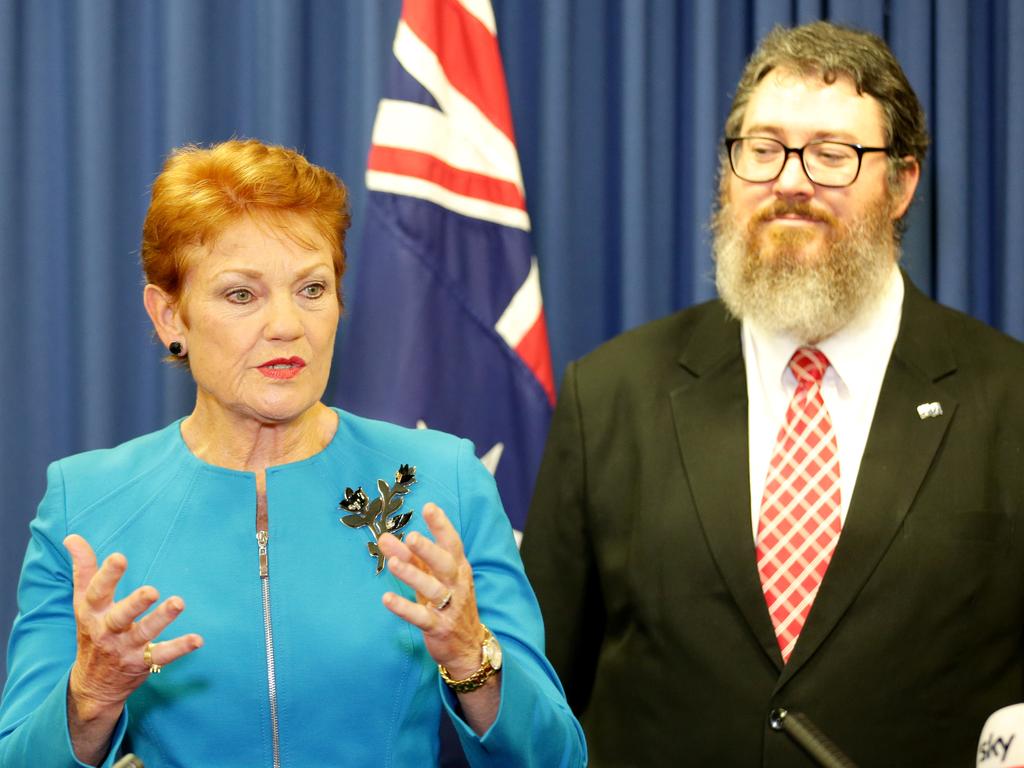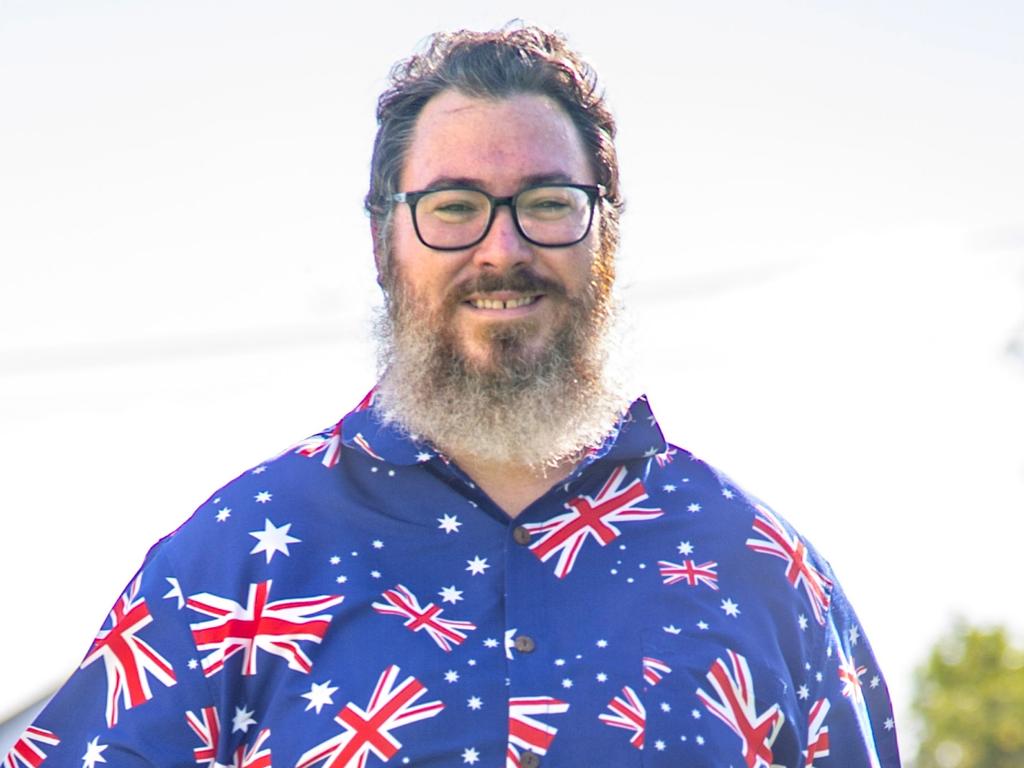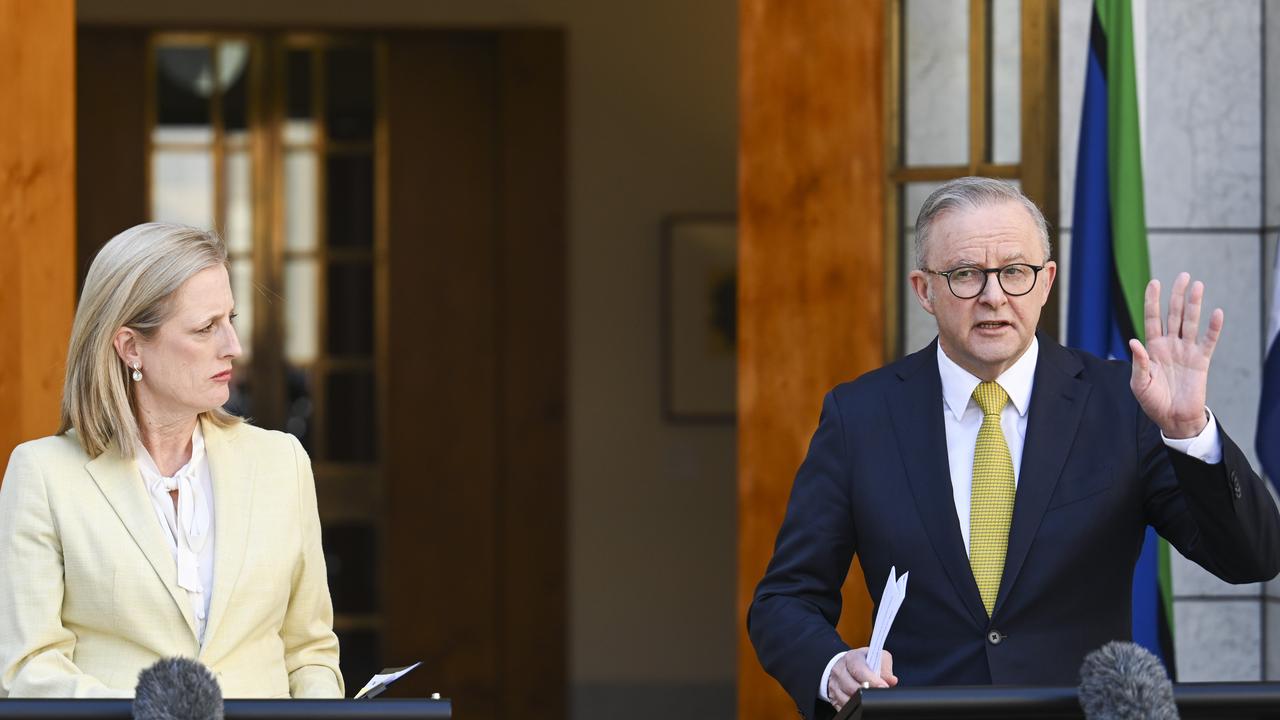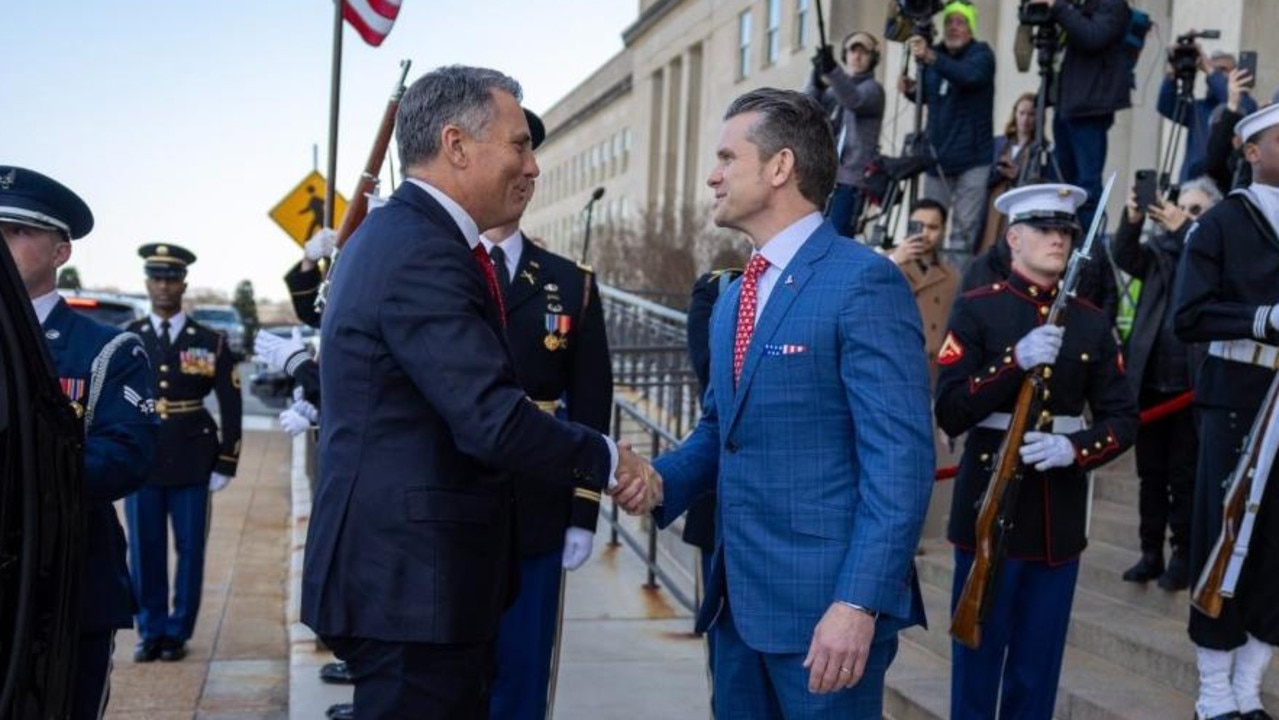Federal election 2022: Pauline Hanson threat to widen preference war
Pauline Hanson is threatening to extend her campaign against moderate Liberals to Queensland, after targeting five electorates around the nation.
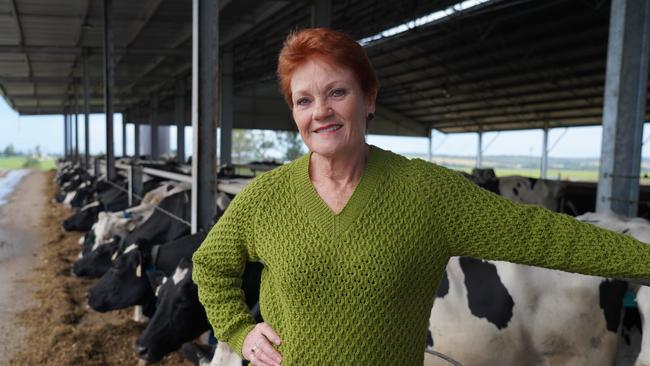
Pauline Hanson is threatening to extend her campaign against moderate Liberals to Queensland and will announce next week the seats in her home state in which she intends to preference Labor ahead of the Coalition.
The Queensland senator on Thursday revealed she would be targeting “left-leaning” moderates in five seats – Bass, Indi, North Sydney, Sturt and Goldstein – and listing Labor ahead of the Coalition on lower house how-to-vote cards.
On its website, the Liberal Party has suggested voters should list One Nation second on ballot papers in the Senate race, ahead of the United Australia Party in third, the Liberal Democrats, Australian Values Party and Australian Democrats.
One Nation strategists said Senator Hanson planned to make an announcement next week about which Queensland lower house seats she would target.
It is a threat that will hang over the Coalition, which benefited significantly from One Nation preferences in Queensland in 2019.
Analysis by The Australian shows if the flow of One Nation preferences from 2019 had been reversed, Labor would have retained the north Brisbane seat of Longman and four LNP seats on safe margins would be inside the AEC’s marginal benchmark of 6 per cent.
Senator Hanson first announced she would preference Labor ahead of Liberal MP Bridget Arthur in Bass, Tasmania, after the Liberal Party planned to preference the Jacqui Lambie Network ahead of One Nation in the Tasmanian Senate race.
“The Liberals need a wake-up call and I’m more than happy to provide it,” Senator Hanson said.
“They are no longer the conservative party Australians knew.
“We need to clean out a small number of left-leaning Liberals who masquerade as conservatives.”
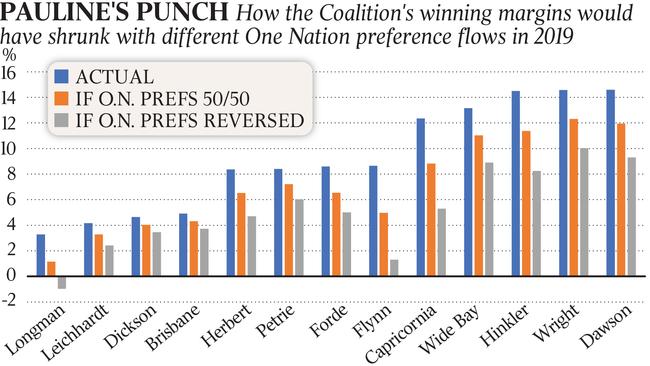
Senator Hanson said as well as Bass, One Nation would target Tim Wilson in Goldstein, Trent Zimmerman in North Sydney, Helen Haines in Indi and James Stevens in Sturt.
“Scott Morrison has surrendered independent Australian climate policy to these left-leaning Liberals, who are obviously in the wrong party,” she said. “The Nationals and their supporters won’t be happy about the Liberals’ lurch to the left on these issues either, which is why I’m prepared to work with them in some seats to offset the loss of Coalition seats held by left-leaning Liberals.”
The impact the One Nation vote can have is illustrated by looking at Queensland seat results at the 2019 election and how they would have changed with a different preference flow.
The Australian’s analysis examined two scenarios: one where One Nation preferences were split evenly between the LNP and Labor; and a more extreme case where the preference flow reversed so that Labor received a majority of preferences equivalent to what the LNP actually received.
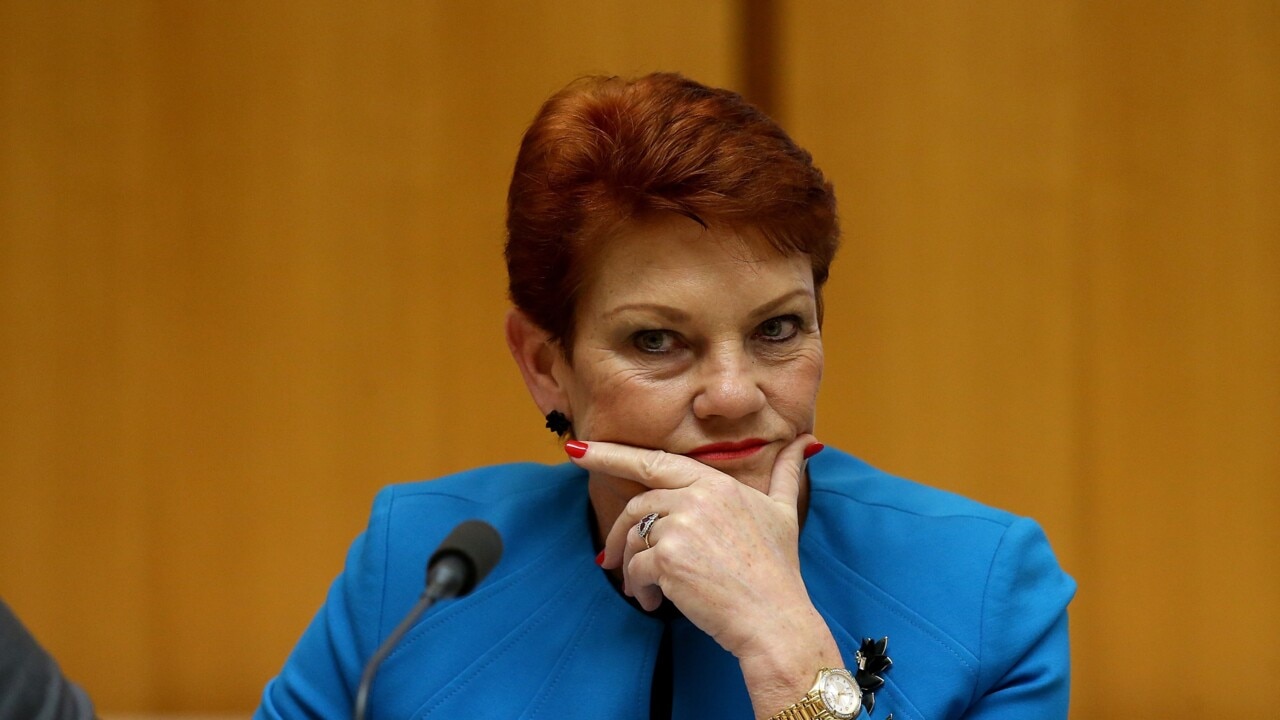
The most dramatic changes were in Longman, on Brisbane’s northern fringe, and the coalmining seat of Flynn.
Longman is the party’s most marginal seat in Queensland, at 3.28 per cent, and one of five the Coalition took from Labor nationwide. That margin would have dropped to 1.15 per cent if One Nation preferences had split evenly. Had Labor received 66 per cent of One Nation preferences, as the LNP did, Longman would still be a Labor seat.
In Flynn, the LNP’s margin of 8.66 per cent would fall to 4.98 per cent in the even-split scenario.
If Labor had received 70 per cent of One Nation’s preferences, Flynn would have finished on a margin of just 1.3 per cent.
The LNP’s margin in Capricornia would also have been slashed from 12.35 per cent to 5.3 per cent had Labor received 70 per cent of One Nation preferences.

